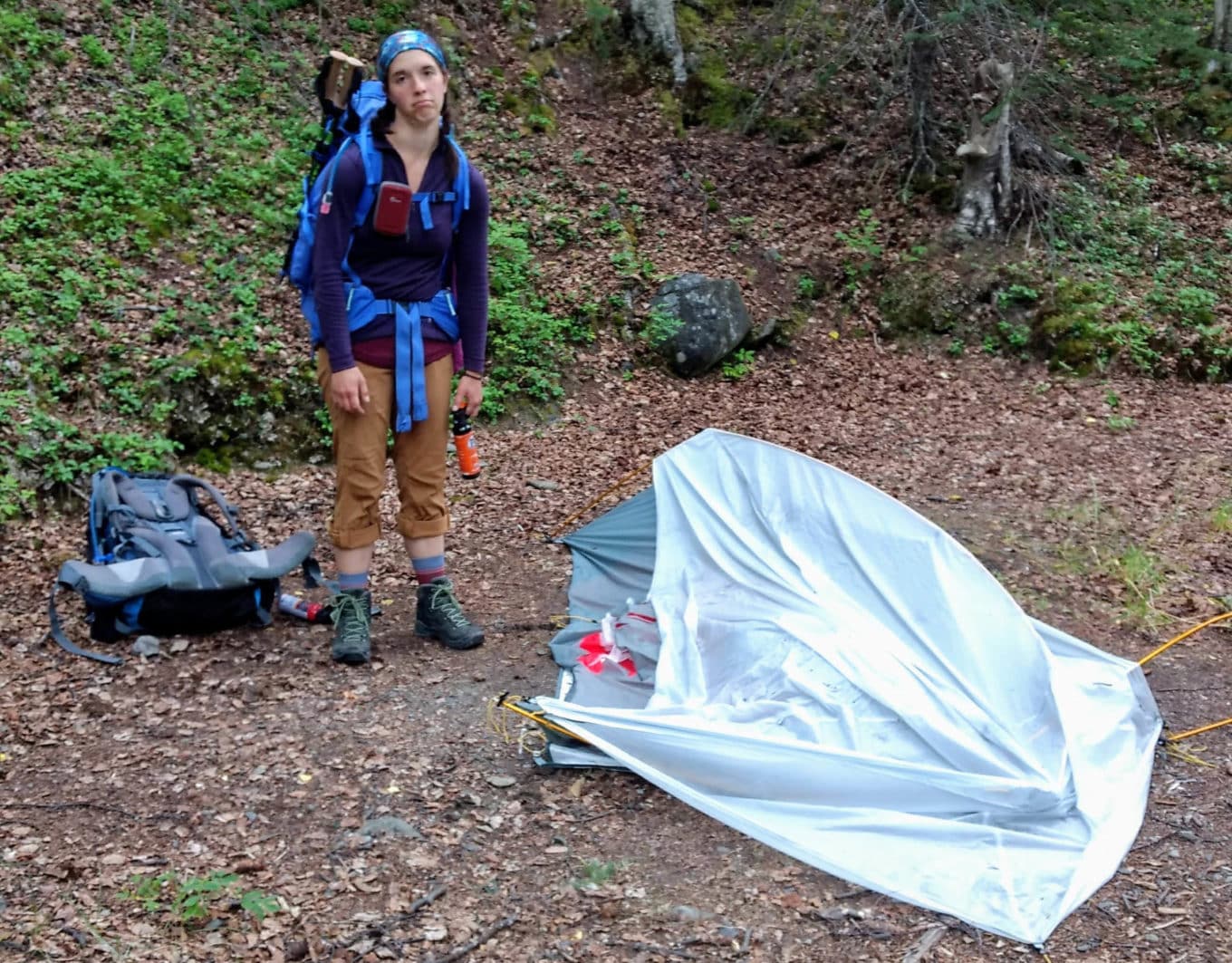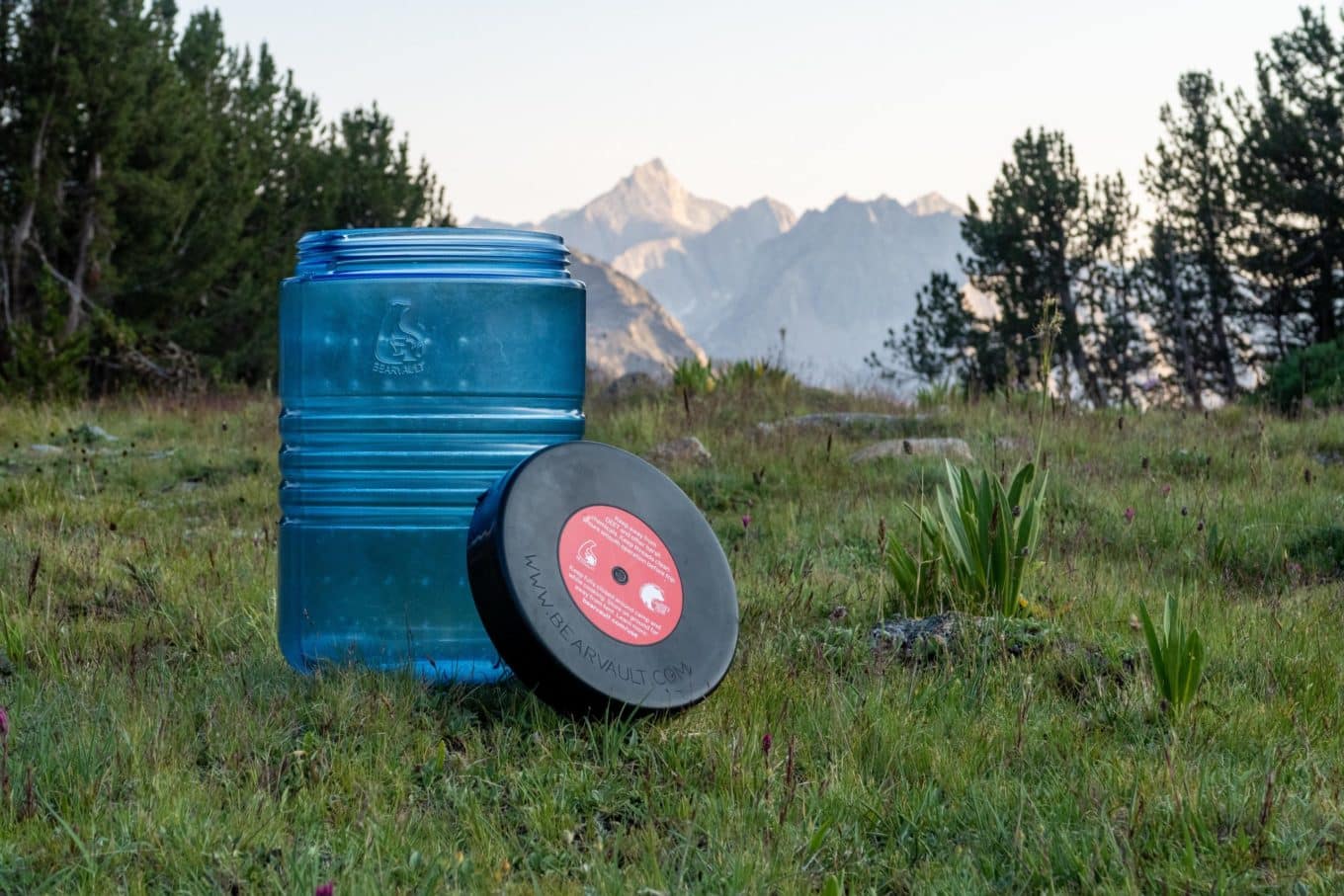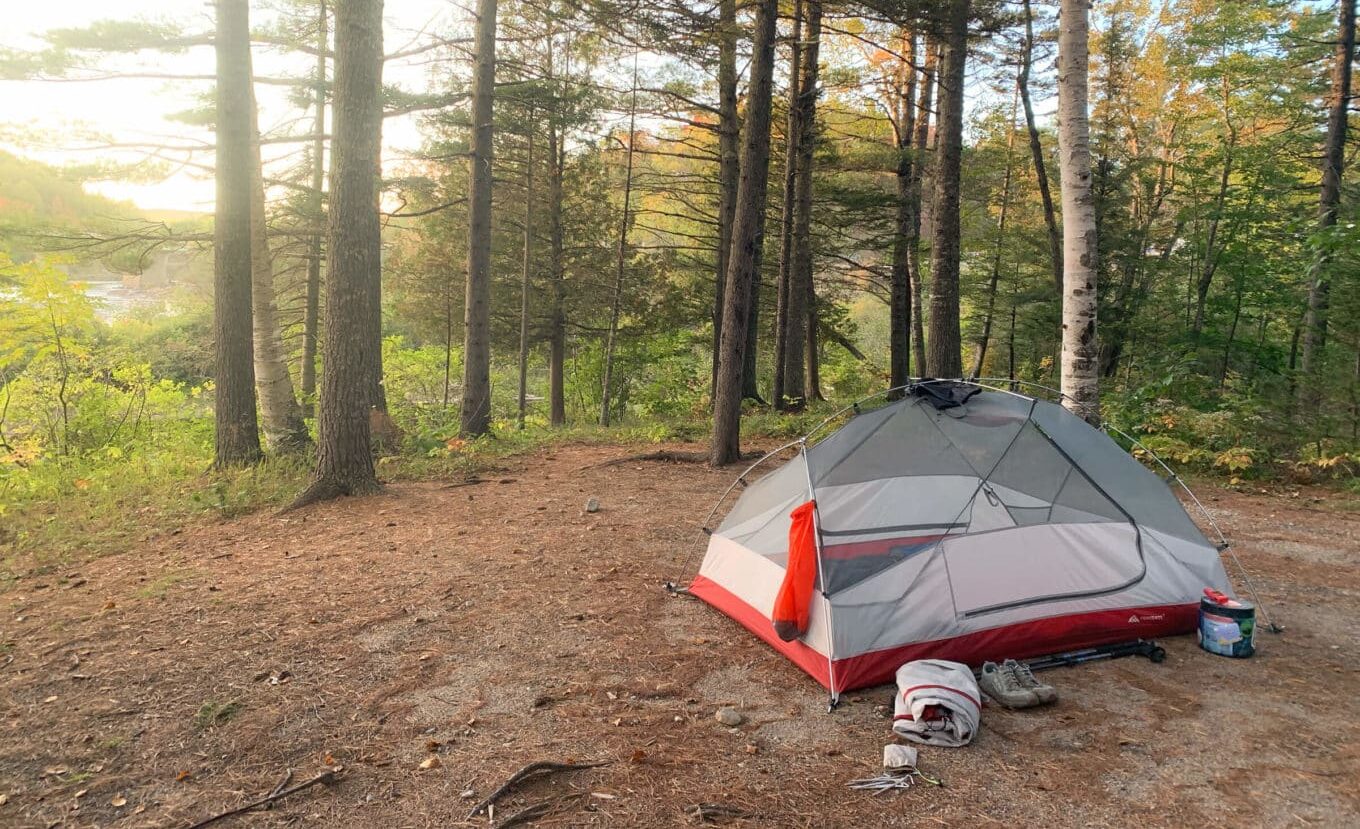Do You Want a Bear Proof Tent? Here’s How to Get One
Maybe you’re scoffing at the idea of a bear proof tent. Maybe you’ve already figured it out. Maybe you’re intrigued. Or maybe the idea never entered your mind!
Having sleeping quarters that wildlife can’t get into would be a dream come true for bear country campers. Let’s take a look at what it takes to acquire some.
Where to buy a bear proof tent
If you camp in bear country you might’ve had an intrusive thought or two about bears knocking on your tent flap in the middle of the night. Frankly, that’s unsettling. You know full-well that your average-joe tent wall isn’t going to stand up to very many knocks.
So where can you find a bear proof tent?
Well… you might have to visit a bank and see about an RV loan for that.
Bears are incredibly powerful creatures. It’s commonly touted that a Grizzly’s bite force (around 975 PSI) is enough to crush a bowling ball. Their swipe-force is twice that of a full grown gorilla. And, while they probably don’t have the best form around, they can deadlift around 700 pounds.

A sad hiker and even sadder tent in Alaska after being shredded by a bear
I’m afraid you’re not going to be stuffing a bear proof tent into your pack.
BUT that’s not the whole story. There’s plenty you can do to make the tent you already have one that bears won’t get into. That’s all you’re looking for, right?
Since you can’t realistically expect to pack an iron fortress into your trunk, the alternative will just have to do. So let’s skip the semantics and move on to the practice of bear proofing your tent!
When should you bear proof your tent?
“Prevention is the best treatment” may be said primarily in the medical community. But it sure rings true in outdoor adventures too.
Bear proofing your tent begins long before you drive the first stake into the ground. As you prepare for your trip, think about things that could draw a bear into camp and strategize how to eliminate or minimize them.
That could include buying gear that will help you make your camp set-up unattractive to bears. Safe food storage containers like the BearVault and bear spray can be key pieces to the puzzle of your bear proof tent! A high-powered flashlight is also a good piece to have in your arsenal. You could even consider an electric parameter if you’re going to an area that you feel requires a greater level of security.
So before you head out, make sure you have all the pieces you need. Then, when you get to your destination, putting it all together will be a breeze.
How to bear proof any tent
Having all the right gear on hand makes bear proofing your tent simple. Here’s a step-by-step guide to bear proofing any tent:
1. Choose the right spot
The first thing you’ll want to do is keep bear behavior in mind as you scout out the best place to pitch your tent. Sleeping in a blueberry patch would definitely not be bear proofing your tent! Having clear lines of sight in all directions is a good thing. You’ll also want to make sure you don’t see lots of bear signs like fresh scat or claw marks in tree bark.
2. Leave your food during set-up
Before you set up your tent, stash your food at least 70 paces away. That will help keep you safe while your attention is on your work. This is where you’ll keep it overnight too, so make sure you can remember where it is!
3. Cook away from the tent
When you’re all set for sleeping and hunger strikes, you’ll want to cook away from your tent. Notice the direction of any breeze and cook downwind. You don’t want the scents from your tasty dinner wafting over your tent and bathing it in attractive smells.

4. Clean up
Clean cooking equipment with bio-safe soap to remove odors. Pick up any bags and wrappers and stash them with the rest of your food. It’s not only for your safety, but also part of leaving no trace.
5. Store all attractants with food stash
Wrappers and rags should be stored with your food stash overnight. If you have any spills and can spare the food laden clothing, stash those too! You don’t want to fall asleep smelling like chicken curry!
6. Keep bear spray and your flashlight handy
When it’s finally time to crawl into your bag, just keep your bear spray handy as an extra precaution. With all that great bear proofing you’ve done, you’re not likely to need it. There’s no need to stash it, though, so having it by your side will help you sleep easier.
More ways to bear proof your tent
The steps listed above are the “Must-Do’s” of camping in bear country if you want to avoid a midnight visitor. But if you’re game for some extra steps, you can consider adding these to your process.
1. Set up a bear alarm
There are a variety of tripwire alarms on the market that are fairly simple to erect. Having the assurance that any bear approaching will be met with loud noises could help you sleep easier. You’ll definitely wake up too, and will be ready to handle the situation.
2. Use a hotwire perimeter
Similarly, purchasing a solar or battery powered electric fence can ensure you have zero interactions with bears overnight. There are even options that are lightweight enough to tempt backpackers, so it doesn’t have to be a system that takes up a lot of space and weighs a lot.
Do bears bother tents very much?
As a general rule, bears are scavengers and try to find easy, low-risk food sources. Most human bear conflicts are defensive in nature, meaning the bear is either startled or was approached by a human. The runner up to that would be food related situations.
A bear’s sense of smell is strong enough to detect small amounts of scent particles from miles away. If you eat in your tent and drop a crumb? A passing bear can smell it. Granola bar wrapper in your jacket pocket? Yup, they can smell that too. Keeping all attractants away from your tent is the number 1 rule of sleeping safely in bear country.
Most human/predator conflicts can be prevented with responsible human behavior. Bears that have found easy food in campsites and gotten away with it can develop the habit of visiting the same spots and searching for the same smells. More campers practicing proper food storage habits will help more bears understand that campgrounds aren’t the place for scavenging.
Following the steps above will greatly reduce any risk of a bear trying to get into your tent!

What to do if a bear visits your tent
If you ever do wake up to loud sniffing in your ear, get loud to scare the bear away. Shouting and clapping your hands will probably be all it takes. If you have an air horn or bear siren, use that as well.
But if it sticks around, you may want to exit the tent with a powerful flashlight and your spray to make a stand. Shine your light in its face to blind it. If it approaches you, deploy your bear spray.
If you’re in a campground, make sure to use “Bear!” as your loud word to alert other campers. You should also make a report to park officials so they can take necessary management actions.
What makes a tent bear proof?
When you’re talking about bear proof food storage, the criteria is pretty narrow. To be truly bear proof, designs will be tested by real bears with highly attractive bait inside. The Interagency Grizzly Bear Committee offers testing for products and gear to earn the coveted badge of approval. It’s a fascinating process, watching their team of giant grizzlies do their best to tear into the test items!
It’s clear that, in the case of labeling something “bear proof”, it needs to face some pretty serious punishment. The bears need to WANT to get in, but not be able to.
But what if the objective for tents could be to simply make them uninteresting? If yours was so utterly boring to a bear that he doesn’t give it a second glance, could you call it bear proof?
Maybe. I guess you can decide what kind of words you want to use. We’ll just focus on helping you get to that point through education and providing safe food storage options.
Following bear safety rules when camping in bear country will make your average joe tent safer. Whether or not you decide to call it bear proof, it’s certainly less likely to invite a bear’s attention. That’s a pretty good thing if you ask me.
Author Profile

Jessica Cockroft
Jess merges her passion for words and an insatiable longing for adventure as an outdoor freelance content writer and marketer. When she’s not busy stringing words together you’ll probably find her planning another camping trip for her crew of kids or taking care of the homestead. You can find her on LinkedIn and Instagram, as well as on her own website.




